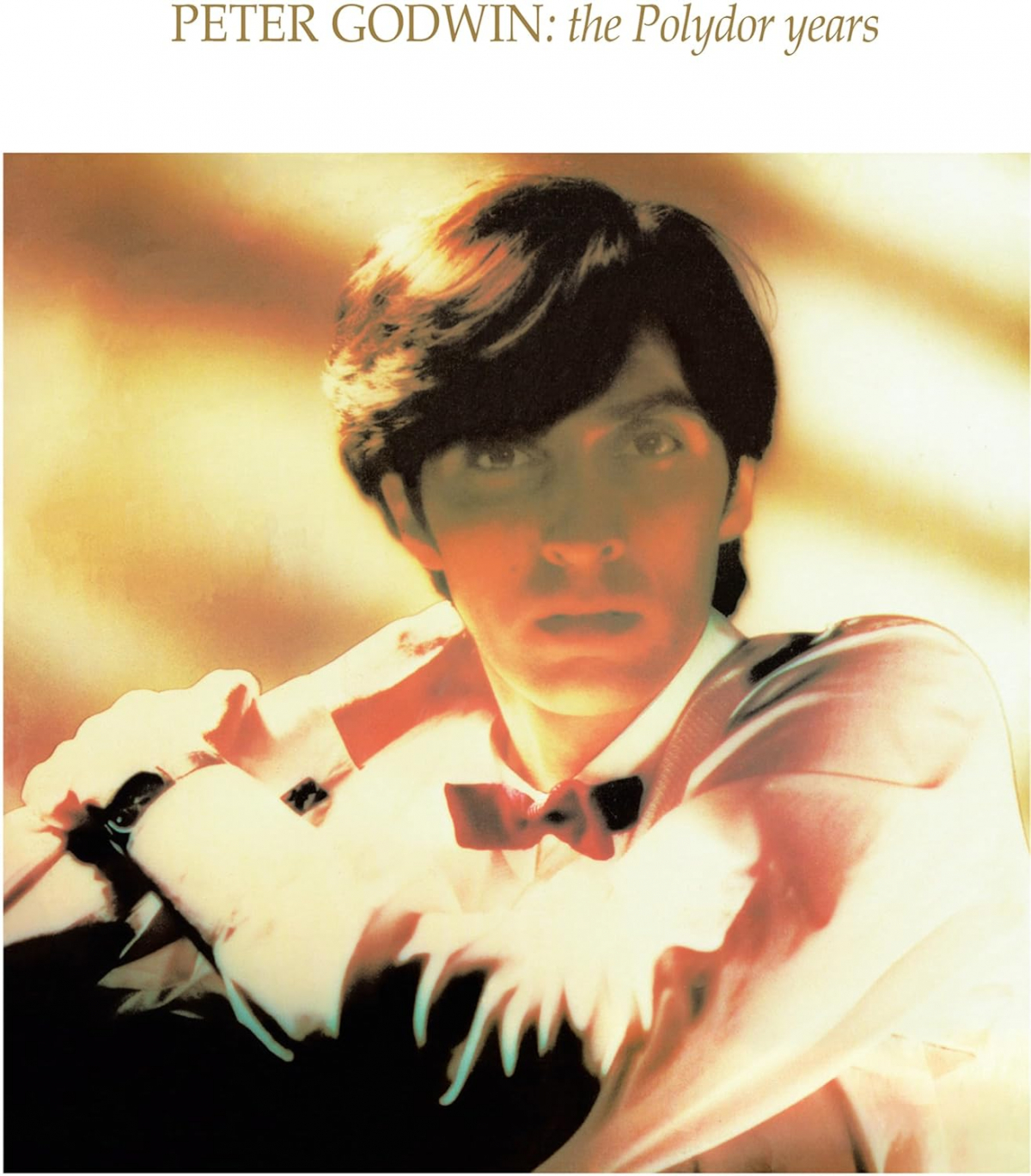
PETER GODWIN The Polydor Years (SFE/Cherry Red)
By the time singer-songwriter Peter Godwin formed Metro with the late Duncan Browne, it was 1976, and they were late, last-gasp arrivals of the kind of sartorial Glam embodied by David Bowie, Bryan Ferry, and John Howard. Their debut is mannered, eloquent, and sophisticated, flagrant defiance for the rising hordes of gob-fuelled sneers from the rise of the Punk evolution.
David Bowie covered their "banned by the BBC" single "Criminal World" on Let's Dance. It was considered too risqué on account of its theme of sexual ambiguity. Browne departed after the first album to pursue a successful solo career, whilst Godwin, not a man to admit defeat, steered Metro into a thin tie and suited New Wave/Art Rock combo that produced two further superlative albums and a handful of sought-after singles, including the classic "America In My Head." He disbanded the group as the new decade began; they bowed out via a gig on Valentine's Day. 1981, at the Rainbow in London. Depeche Mode and Ultravox were also on the bill. Godwin would pursue his own solo ambitions, signing to Polydor Records later that year.
Although usually labeled as "Electro-Synth," Godwin transcends that lazy categorization. Of course, there are several elements of accuracy, but his bittersweet lyrics betray worldly darkness, glass shards in the glitter, as deployed in the single "Emotional Disguise."
"Too many love affairs that didn't turn out right
Too many battlegrounds and tears that end in fights
A mirror shattered by the pain that's in your heart
A close embrace that made us feel apart"
Godwin remembers: "One night in Manhattan, 1983, the legendary Jellybean Benitez invited me and Madonna and Ralf Hutter (from Kraftwerk) to The Funhouse for a Godwin soiree featuring 'Emotional Disguise' spun back to back in all its versions. Jellybean's favorite of mine, and we watched the kids from the Bronx breakdancing to it. It was so surreal!"
There's a distinctly European flavor to Godwin's debut album Dance Emotions, released in 1982. It is a strange hybrid of songs that could be from a sadly imaginary Parisian noir movie that smacks of Kraftwerk on Prozac. His debut single, "Torch Songs For The Heroine," was produced by Midge Ure and has a catchy gloominess. The rest of the affair was diligently overseen by Georg Kajanus (Eclection/Sailor/Data). It remains a perfect catwalk calling card that exemplifies its times whilst effortlessly transcending them. There is also a wonderful plethora of remixes as bonus tracks gathered together for the first time in a punishment of gaudy riches.
1983 saw the release of Correspondence, again with Georg Kajanus at the controls. It is a dynamic affair I covered previously here, and needless to say, my positive review hasn't changed. "Baby's In The Mountains" remains a scintillating single, a floor filler still, aided and abetted by Carol Kenyon's astonishing vocal contribution. Epic, and then some. Again, a copious abundance of remixes as additional material bolsters this overdue arrival in the digital age. The songs still provoke the urge to boogie. A sense of Studio 54 and poppers in the air.
Frustratingly, it was to be Godwin's final release for many years. In the interim, he has seldom been idle, having acted, produced other artists, and collaborated with Steve Winwood on two albums. A new project, RE/GENERATION with Leah Lane of Rosegarden Funeral Party, betrays that he has lost none of his stylistic edge.
In a world where more seems never to be sufficient, The Polydor Years confirms the value of a selective creative approach. A perfect artifact from a time worthy of recall, it arrives afresh to inspire, entertain, and beguile with refreshed relevance.
